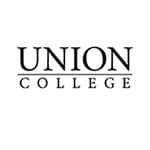Tag Archives: reusable
Plastic vs. Reusable Bags
My proposal for the Green Grant would be to give each first-year a reusable grocery bag. The overall goal of this change would be to reduce the number of disposable plastic bags that are used on campus. This reusable bag would be given to first-year students at orientation, much like the reusable water bottles that were given to my class. These bags’ purpose would be for food and bookstore items. Any students buying snacks, getting upper to go or grabbing a salad from O3, can use the reusable grocery bag. Also, I believe that incentivizing this usage by offering a 3% discount on all bookstore food purchases for students who bring the reusable bag would help encourage the success of the program. Students would save declining, and the planet in the process. If the average size of the new freshman class is about 510 students (rough estimate), then it would cost Union about $0.95 per bag, with a total cost of $484.50. Now, one order of the biodegradable plastic bags that Union currently uses in the bookstore (1000 bags per order), costs $90.29. If the bookstore saw just a 10% decrease in demand for plastic bags per term, that would mean a 30% decrease per academic year; which is significant. Then the college can order fewer plastic bags (ergo spend less money on plastic bags each term), and reduce our waste in a cost-efficient way. The Green Fee Grant is a perfect way to fund this effort and can totally be reasonably implemented next fall.
Reusable Coffee Cups in Wold
Every morning, students rush to Starbucks in Wold to get some coffee before their first class. The line is always enormous, stretching all the way down the hall. Sometimes, students purchase multiple cups of coffee a day to get their daily dosage of caffeine. The amount of paper and plastic cups that Starbucks uses on our campus a day creates a tremendous amount of excess waste.
Therefore, to combat this impractical waste issue, I would use the Green Grant to create reusable cups for Starbucks. There will be cups for hot and cold beverages. With the purchase of a cup (approximately 5-10 dollars), the amount of plastic and paper waste per day would be drastically decreased. To incentivize this, students who use their reusable coffee cups should receive some type of discount on their coffee. I think this idea is a quick, and cheap way to limit waste on campus.

